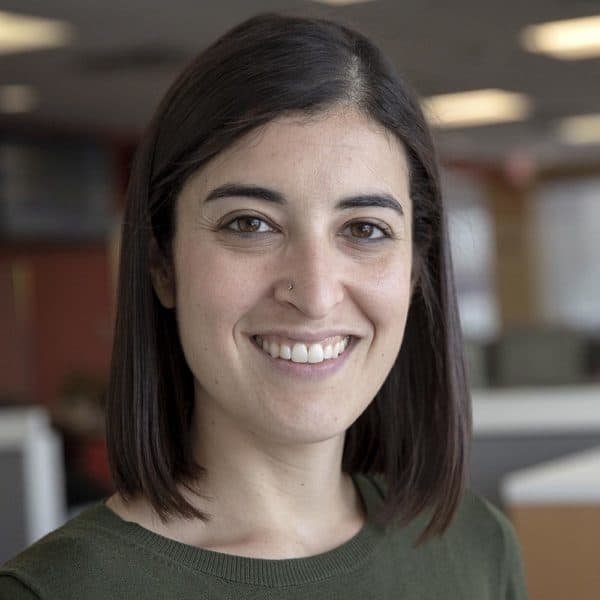Advertisement
Sitting Shiva Online: How Mourning The Dead Has Changed
Resume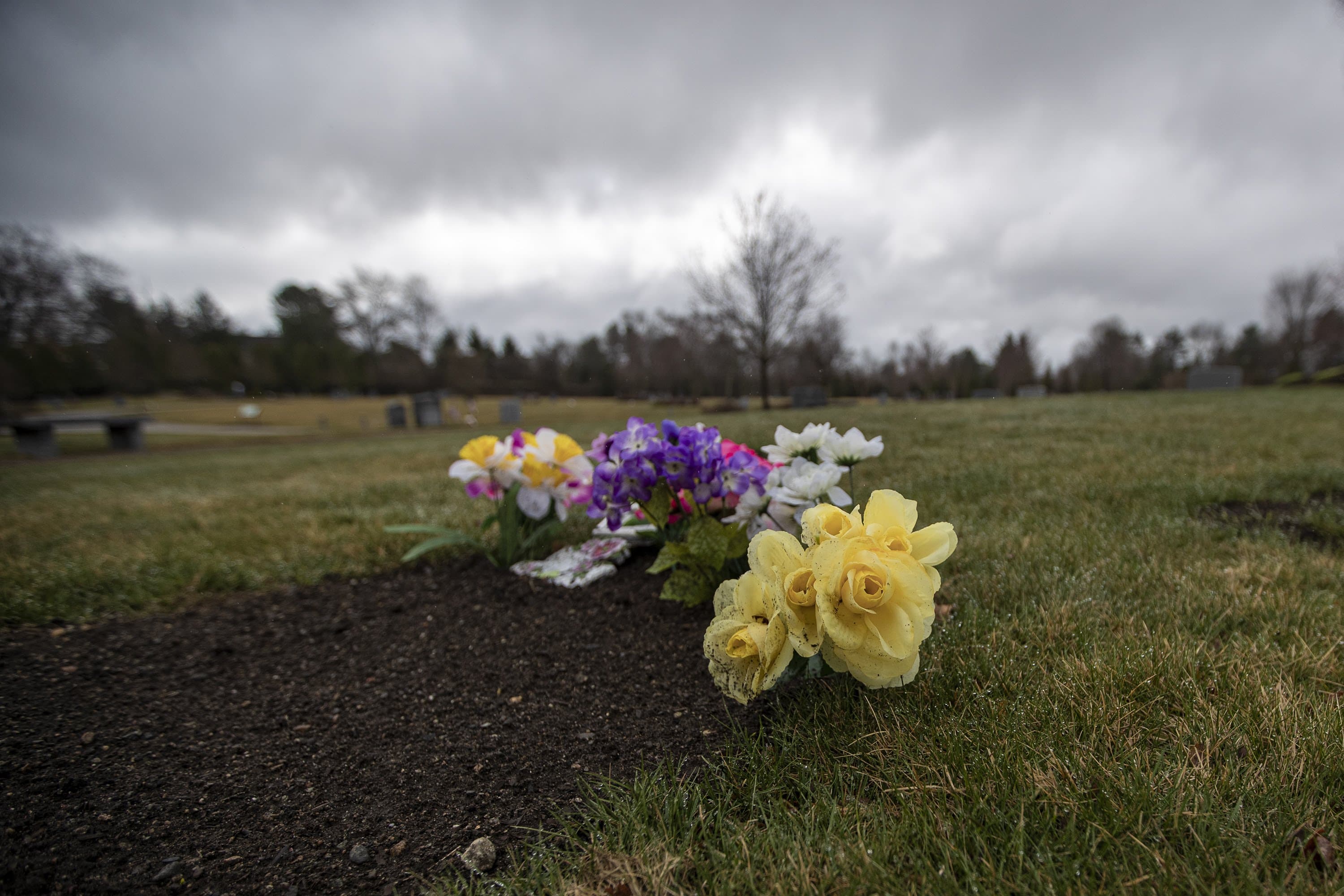
Debi Cantor-Sternin and her two sisters grew up in Queens, New York. Their parents, Irwin and Gloria, were active in their local synagogue, and the family celebrated all the Jewish holidays.
“That was their thing: being Jewish, identifying as Jewish culturally, identifying as Jewish religiously,” Cantor-Sternin says of her parents.
Following Jewish custom, law and tradition was so important to them, that her mother kept a strict kosher kitchen. That changed a few years ago, when she moved into a nursing home in Massachusetts.
Gloria Cantor, 90, died in that nursing home on March 18, and because of the pandemic, Cantor-Sternin couldn’t visit her mother in her final days or attend her funeral.
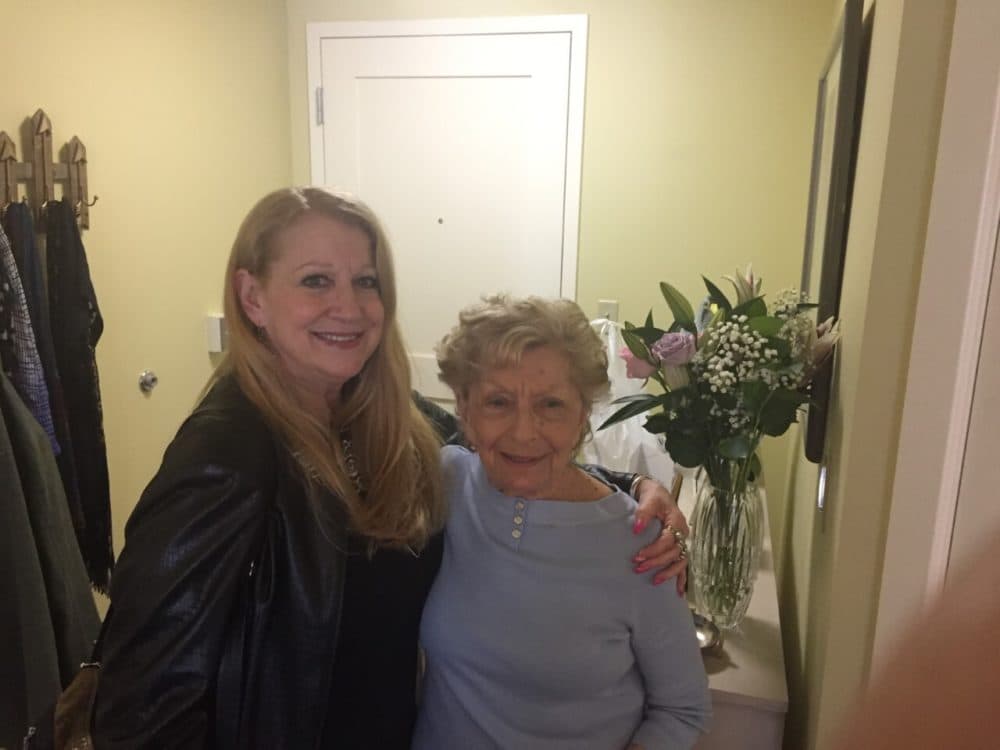
The coronavirus pandemic that has upended how we live has also changed what happens when we die. From hospital visitation restrictions to funeral services, social distancing has forced many to change how they mourn the loss of a loved one.
“It was not even a possibility that I could be at my mother's side during her passing,” says Cantor-Sternin through tears. “When my dad passed [in 2017], the whole family was there, and we were holding on to him and singing songs to him in the hospital … But I couldn't do anything like that for my mother.”
In fact, she hadn’t been able to see her mother in months. Cantor-Sternin has chronic upper respiratory problems, and a bad case of bronchitis kept her in her New Jersey home for most of the fall. By the time she was well enough to travel, the coronavirus was spreading in the U.S., and nursing homes across the country — including her mother's in Massachusetts — were restricting visitors in response. Even her sister who lives nearby couldn’t visit their mother.
“So I couldn’t see my mother in the fall because I was too sick, and then as she began to die, the pandemic started to accelerate," Cantor-Sternin says. "So I couldn’t see her, which was very painful. Very painful.”
Her mother’s health continued to decline, and Cantor-Sternin says she began calling the nursing home every day, asking that the phone be put on speaker so she could talk into her mother’s ear. She kept this up as her mother became more and more unresponsive and entered hospice care.
The nursing home had an exception to its visitation policy for end-of-life care patients, so when medical staff said it was only a matter of hours or days, Cantor-Sternin’s sister was able to see their mother. But Cantor-Sternin and her other sister--who lives in Colorado — only had the phone.
“On the day of her death, I said, ‘I think she's waiting for us.’ And so I told her, I said, ‘Mom, you have to stop waiting.’ I said, ‘we can't come. Lots of people are sick. So whenever you're ready, it's OK for you to just go to sleep.’ She died within five hours of that phone call,” Cantor-Sternin says.
"I asked, 'Rabbi, do you think my mother will ever forgive me? Do you think God will forgive me for not being at my mother's funeral?’"
By this point in March, many states were prohibiting large gatherings and advising against interstate travel. So with one sister in Colorado and Cantor-Stern in New Jersey, their sister in Massachusetts decided to livestream the graveside funeral service from Beit Olam Cemetery in Wayland.
Cantor-Sternin and her husband watched on their computer.
“It was just my sister and her husband at the grave site, and a couple of people spread apart distantly,” she says of the service. “And the rabbi was saying some prayers.”
Later that night, the family logged into Zoom for a virtual shiva service. The word “shiva” means seven in Hebrew, and it refers to the seven days of mourning that people observe after a loved one dies.
In normal times, friends and family gather at someone’s house. But during the pandemic, that’s not possible.
“My sister ran a virtual shiva. Her objective was, let's share stories about mom. Let's share stories about Gloria,” Cantor-Sternin says.
She says she talked about how as a child, she thought her mother was a movie star because she always looked so pretty. One of her nephews recalled a bunch of “grandma-isms” — strange phrases she’d dole out that became inside jokes for the family. They all laughed together that night.
“It was good to have the family shiva because I could see my cousins' faces and I didn't feel as cut off,” she says. “The [difficult] thing with this pandemic is that it’s not just how do you bury and sit shiva for your mother — but [that] all of the big and small things that make up your ability to mourn, and respond in any normal fashion, are cut [off]. It’s a new reality.”
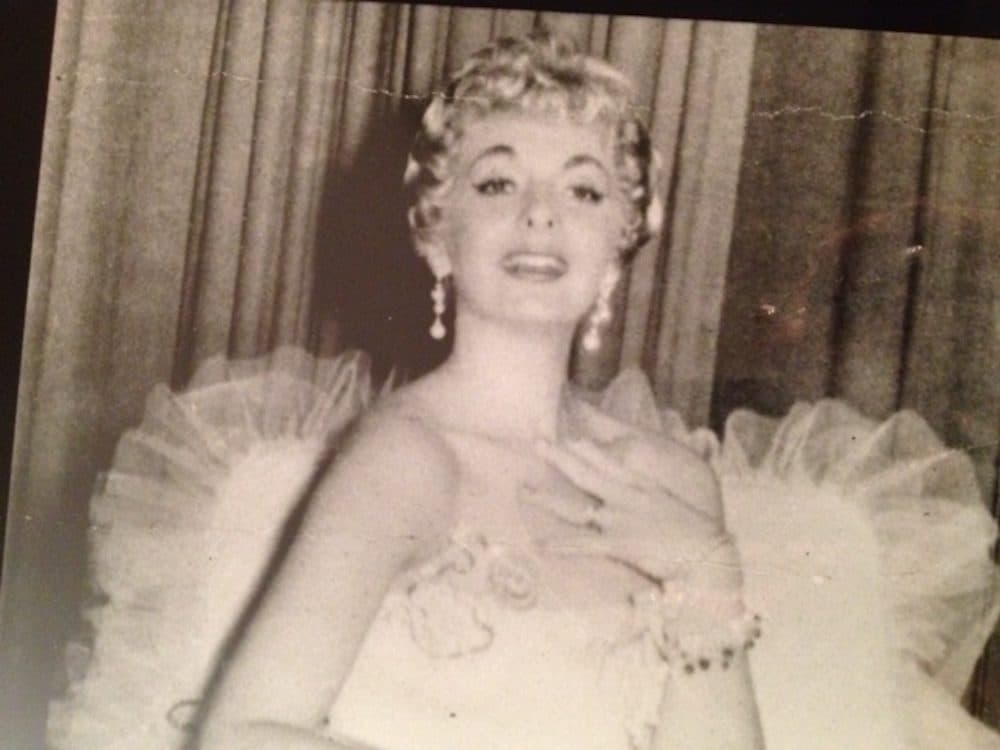
Attending funerals, adding a shovelful of dirt to the grave, sitting shiva, “These are the familiar things that people do," she says. "You know, not just because it's written, but because it provides structure in your morning and in your time of loss. And it provides comfort.”
A few days after the funeral, Cantor-Sternin says she couldn’t shake a lingering feeling of guilt. She called her rabbi to talk.
“I asked, ‘Rabbi, do you think my mother will ever forgive me? Do you think God will forgive me for not being at my mother's funeral?’ And he said, ‘Debi, I'm not God, but I work for him and I forgive you because the preservation of life supersedes everything,’ ” she says.
One of the most important teachings in Judaism is something called "pikuach nefesh." Literally translated, it means “saving a life.” The idea, the rabbi told her, is that almost any law or tradition should be suspended if doing so will save or preserve someone's life.
Cantor-Sternin says the conversation helped. It made her realize that the social distancing, the virtual funeral and shiva — if this was the Jewish teaching, it’s what her mother would have wanted.
“She's not judging me or nor do I need forgiveness for what has had to happen under the time we're living in," she says. "And it makes me feel just a little bit lighter to realize how life is the most important mitzvah of all.”
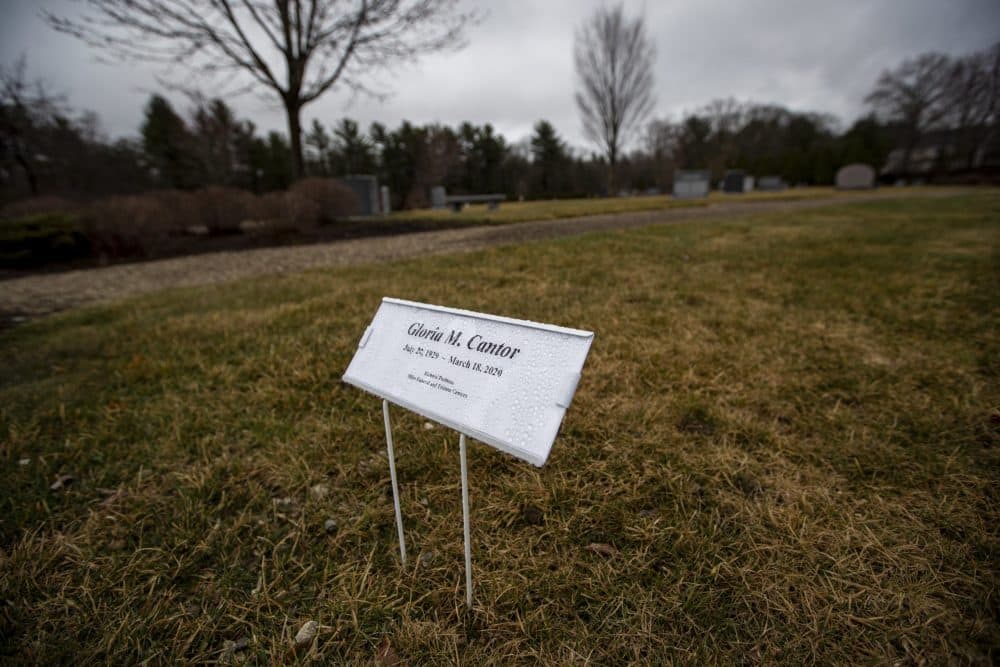
This segment aired on April 15, 2020.
